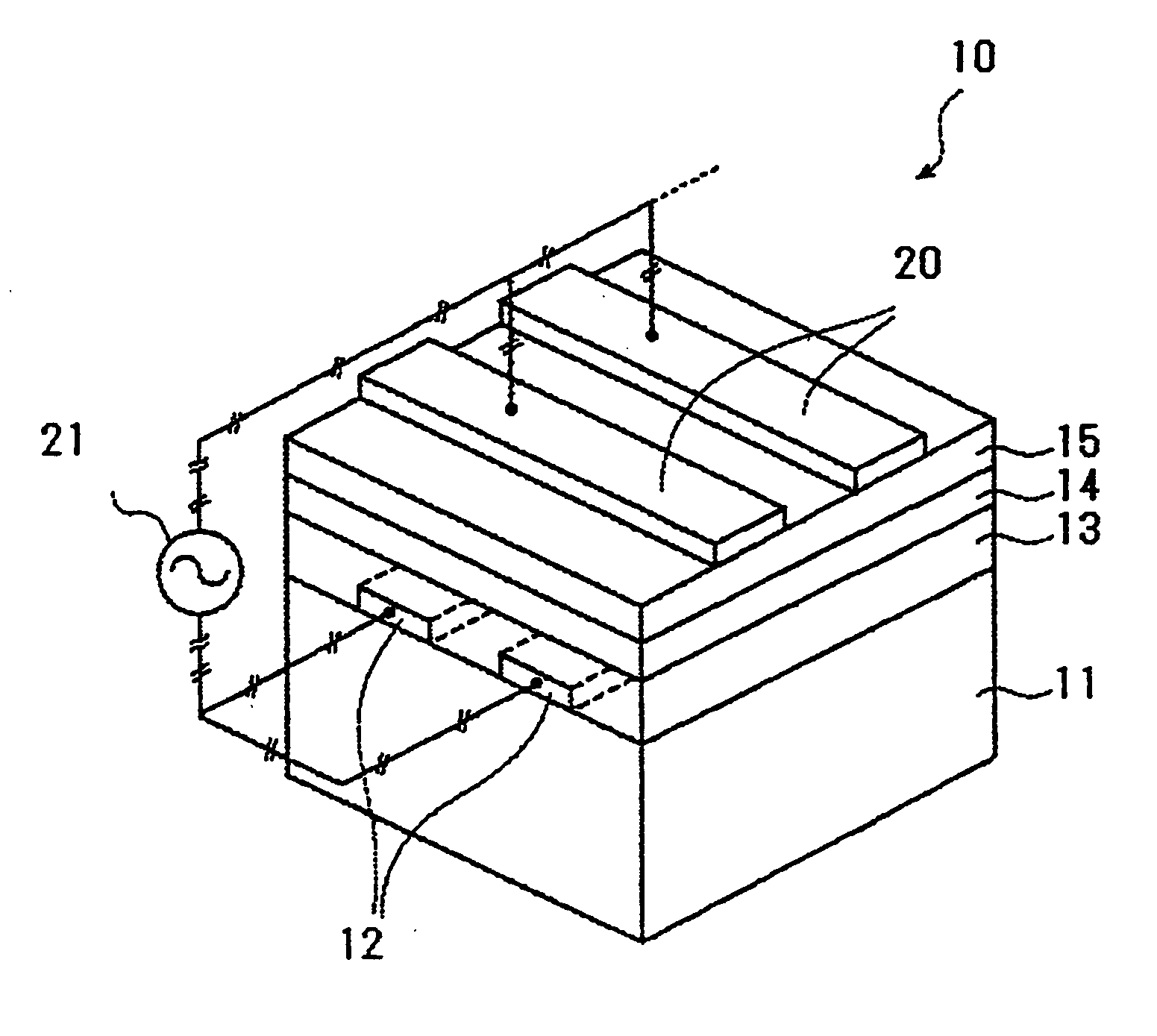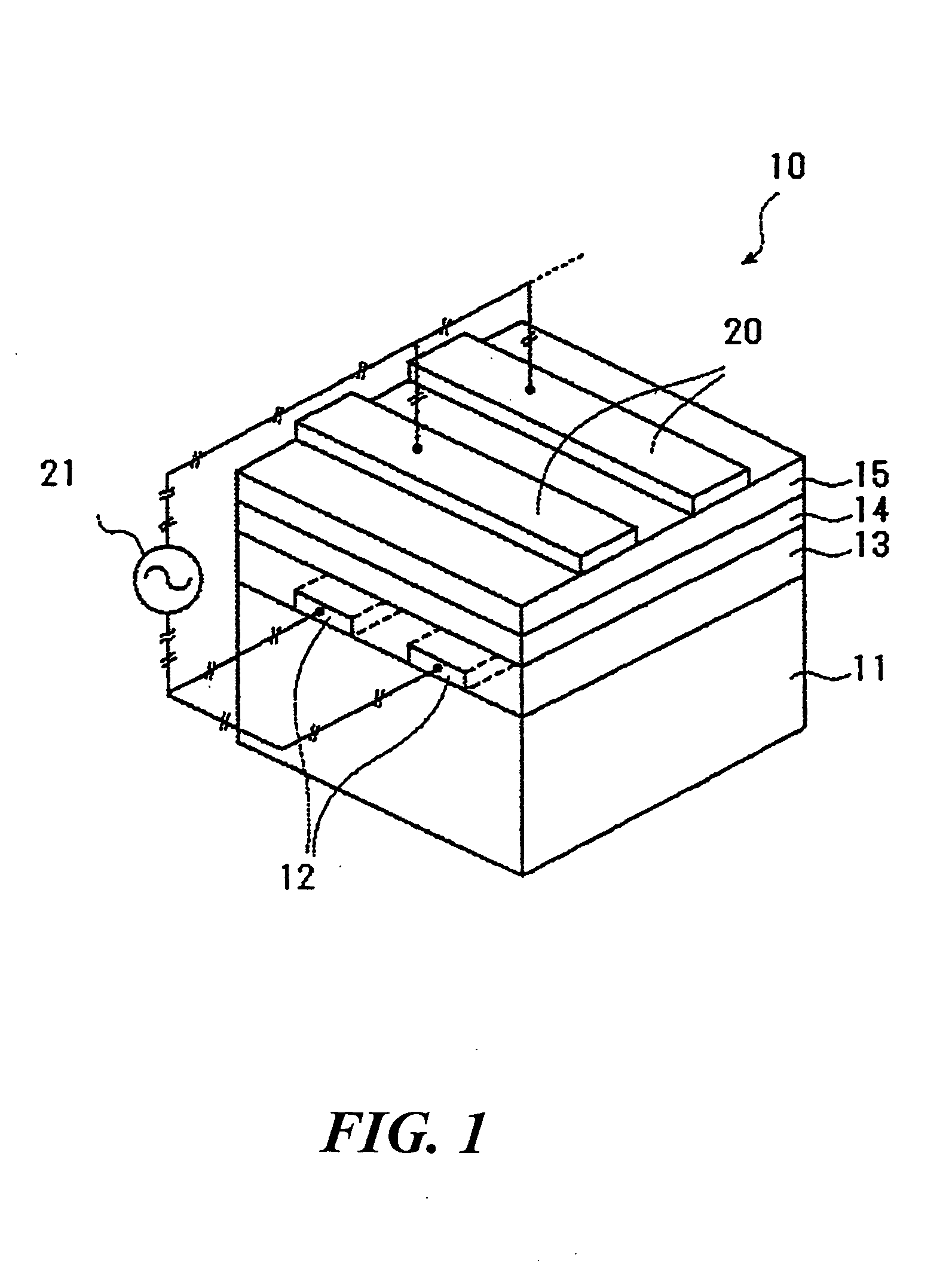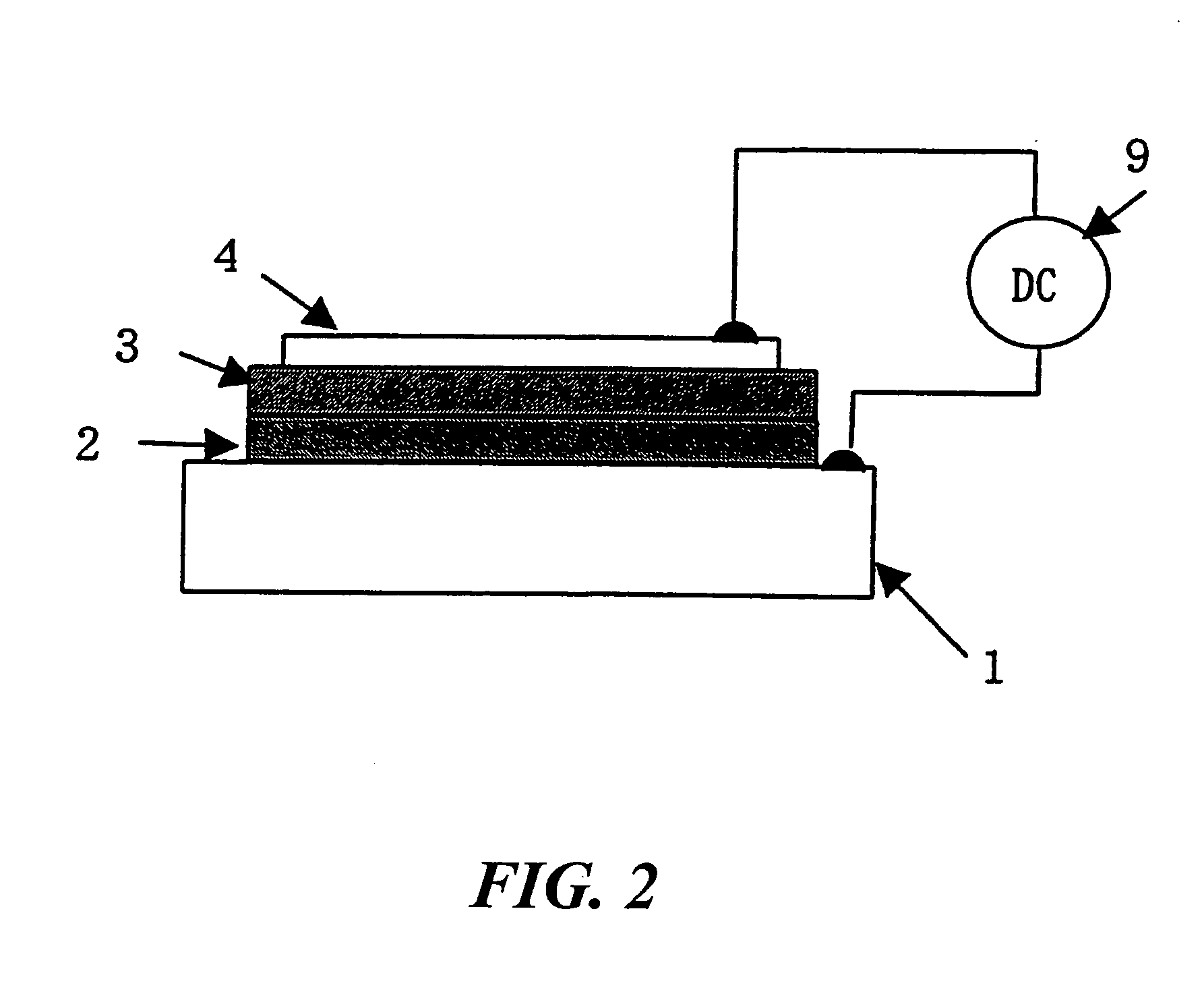Inorganic electroluminescence device driven by direct current
a direct current, electroluminescent device technology, applied in the direction of discharge tube luminescnet screen, discharge tube/lamp details, luminescent compositions, etc., can solve the problems of fluorescent organic solid, weak element, and the characteristics of the electrode provided on the light emitting layer directly, or through hole injection layer or electron injection layer, etc., to prevent short circuit between the electrodes, reduce the effect of oxidation and oxidation ra
- Summary
- Abstract
- Description
- Claims
- Application Information
AI Technical Summary
Benefits of technology
Problems solved by technology
Method used
Image
Examples
example
[0029] The present invention will be described in grater detail with reference to the example and comparative example, but the present invention is not limited to these examples.
[0030] The EL element having the configuration shown in FIG. 2 has been produced.
(Production of Luminescent Material)
[0031] An amount of 100 g of zinc sulfide is blended with 0.27 g of manganese sulfide, 0.5 g of zinc oxide, 3 g of barium fluoride, 3 g of magnesium chloride, and 0.012 g of iridium chloride, and the blended materials are put in a reaction chamber of a high pressure-resistant container, followed by adding trinitrotoluene. The reaction container is sealed to reduce the pressure therein to 0.01 mmHg, and the reaction chamber is heated to about 450 degrees to induce an explosion. After confirmation that the explosion reaction has been generated within the container, the reaction chamber is cooled and the rough product is corrected. This is put into water and stirred, and then suspended solids...
PUM
 Login to View More
Login to View More Abstract
Description
Claims
Application Information
 Login to View More
Login to View More - R&D
- Intellectual Property
- Life Sciences
- Materials
- Tech Scout
- Unparalleled Data Quality
- Higher Quality Content
- 60% Fewer Hallucinations
Browse by: Latest US Patents, China's latest patents, Technical Efficacy Thesaurus, Application Domain, Technology Topic, Popular Technical Reports.
© 2025 PatSnap. All rights reserved.Legal|Privacy policy|Modern Slavery Act Transparency Statement|Sitemap|About US| Contact US: help@patsnap.com



